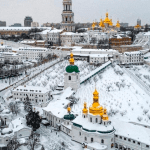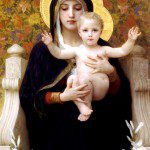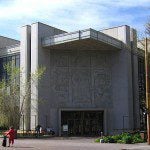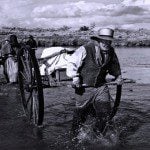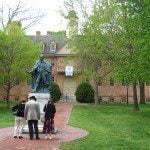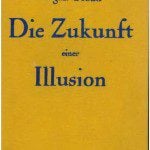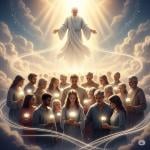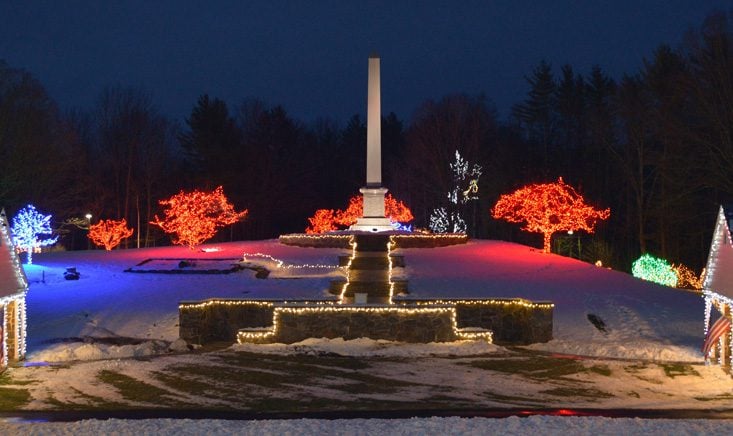
(Wikimedia Commons public domain photograph)
Tomorrow — Monday, 23 December 2024 — will be the 219th anniversary of the birth of the Prophet Joseph Smith Jr. Even among faithful and committed Latter-day Saints who revere his memory, his birthday is almost never noticed — which is scarcely surprising, especially given its proximity to Christmas. (Virtually nothing can escape the powerful gravitational pull of the year’s super-holiday.) So far as I noticed, Joseph’s name wasn’t mentioned a single time during my ward’s special Christmas sacrament meeting today. Which, of course, is perfectly fine.
I think it’s entirely appropriate, though, to give at least a moment’s thought to the Prophet of the Restoration. After all, it’s not as if other worthy individuals from both religious and secular history aren’t commemorated throughout the year.
Traditionally, in the Catholic and Orthodox and Anglican communions, as well as several others, the liturgical year is organized by associating each day with one or more saints. Such days are said to be “feast days,” referring not to a banquet or a large meal but, rather, to a “festival” or an annual religious celebration. Accordingly, 2 January is the feast day of Saints Basil the Great and Gregory Nazianzen. The feast day of St. Catherine of Sienna is 29 April. St. John Chrysostom has his feast day on 13 September, and 4 December is the feast of St. John of Damascus. And so on and so forth. Most (if not all) days of the year are significant to the memory of some saint or other.
Many countries (and perhaps all of them) also celebrate secular holidays in honor of distinguished people of the past. Columbus Day, for instance, is a national holiday in many countries of the Americas and even elsewhere. In the United States, it’s an official federal holiday, marking the anniversary of the arrival of Christopher Columbus in the New World.
Presidents’ Day — which, officially, at the level of the federal government, is Washington’s Birthday — is celebrated on the third Monday of February. Some celebrate all of the American presidents on Presidents’ Day, while some commemorate only George Washington, or Washington and Lincoln, or Washington and Jefferson.
Martin Luther King Jr. Day (or “MLK Day” or, officially, the Birthday of Martin Luther King Jr.) is a federal holiday in the United States that is observed on the third Monday of January each year.
For that matter, I’ve tried to make it my practice to do at least something special in connection with my late parents’ birthdays, with my wife’s parents’ birthdays, and with the birthday of my too-soon-lost brother. A special dessert that they loved, perhaps, or a dish that we associate with them. Perhaps a particular story. And I aspire to mark the birthdays of some of our ancestors. I think such commemorations are valuable reminders and teaching moments, among other things.
Accordingly, although it’s neither a holiday nor a “feast day” in some sort of Latter-day Saint liturgical calendar, 23 December — Joseph Smith’s birthday — seems to me worthy of note. And I intend to note it.
I here affirm my own personal conviction in the words of Elder John Taylor of the Quorum of the Twelve Apostles. Elder Taylor, a convert from Great Britain, was a close associate of Joseph and Hyrum Smith and he was, himself, gravely wounded in the same despicable and cowardly attack that took their lives at Carthage, Illinois, on 27 June 1844. He survived, however, and he eventually became the third president of the Church of Jesus Christ of Latter-day Saints. This is part of what he wrote while recovering from his own wounds after the martyrdom:
Joseph Smith, the Prophet and Seer of the Lord, has done more, save Jesus only, for the salvation of men in this world, than any other man that ever lived in it. In the short space of twenty years, he has brought forth the Book of Mormon, which he translated by the gift and power of God, and has been the means of publishing it on two continents; has sent the fulness of the everlasting gospel, which it contained, to the four quarters of the earth; has brought forth the revelations and commandments which compose this book of Doctrine and Covenants, and many other wise documents and instructions for the benefit of the children of men; gathered many thousands of the Latter-day Saints, founded a great city, and left a fame and name that cannot be slain. He lived great, and he died great in the eyes of God and his people; and like most of the Lord’s anointed in ancient times, has sealed his mission and his works with his own blood; and so has his brother Hyrum. In life they were not divided, and in death they were not separated! (Doctrine and Covenants 135:3)
In order to illustrate my attitude of respect toward Joseph Smith, I offer a slightly altered text of the opening verses of the New Testament gospel of John, as rendered in the English Standard Version of the Bible. I feel and intend no disrespect to John the Baptist in doing so; I want merely to point to the analogous role played by the Prophet of the Latter-days:
1 In the beginning was the Word, and the Word was with God, and the Word was God. 2 He was in the beginning with God. 3 All things were made through him, and without him was not any thing made that was made. 4 In him was life, and the life was the light of men. 5 The light shines in the darkness, and the darkness has not overcome it.
6 There was a man sent from God, whose name was [Joseph]. 7 He came as a witness, to bear witness about the light, that all might believe through him. 8 He was not the light, but came to bear witness about the light.9 The true light, which gives light to everyone, was coming into the world. 10 He was in the world, and the world was made through him, yet the world did not know him. 11 He came to his own, and his own people did not receive him. 12 But to all who did receive him, who believed in his name, he gave the right to become children of God, 13 who were born, not of blood nor of the will of the flesh nor of the will of man, but of God.
14 And the Word became flesh and dwelt among us, and we have seen his glory, glory as of the only Son from the Father, full of grace and truth.15 ([Joseph] bore witness about him.)
The festive lights at Joseph Smith’s birthplace in Vermont point not to his birthday but to the birthday of the Savior, to whom he himself also pointed. Joseph was not the light, but he came to bear witness about the light. And here, as an example of his witness, are his words and those of Sidney Rigdon regarding the magnificent revelation that they received on 16 February 1832 at Hiram, Ohio:
22 And now, after the many testimonies which have been given of him, this is the testimony, last of all, which we give of him: That he lives!
23 For we saw him, even on the right hand of God; and we heard the voice bearing record that he is the Only Begotten of the Father—
24 That by him, and through him, and of him, the worlds are and were created, and the inhabitants thereof are begotten sons and daughters unto God. (Doctrine and Covenants 76:22-24)
Praise to the man who communed with Jehovah! And Merry Christmas to you all!


